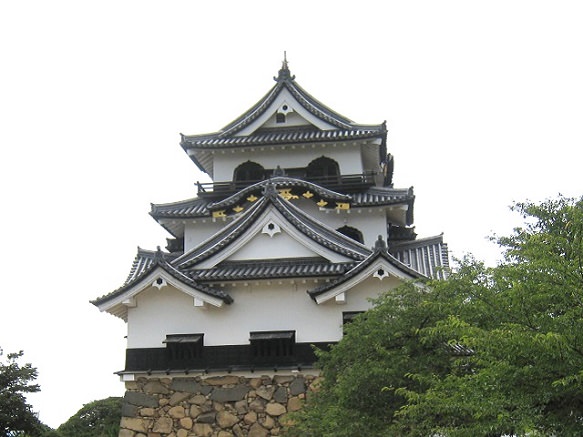-
- USA/Canada 1-800-285-2726
- Australia (02) 8006 4411

Hikone is in the central-eastern part of Shiga and is a center for economy and culture on the eastern shore of Lake Biwa-ko, Japan's largest lake. The town has been an important traffic point since early times and developed as a castle town of the Ii family. Hikone Castle is an original castle, i.e. it survived the post feudal era without undergoing destruction and reconstruction. Hikone Castle has a backdrop of Lake Biwa-ko and Kinki-zan Hill (50 m), and is regarded as one of four national heritage castles, along with Inuyama Castle in Aichi, Himeji Castle in Hyogo, and Matsumoto Castle in Nagano. Its three-layered chalk castle tower still maintains its noble and heroic appearance as a symbol of the city. At the base of the castle hill stands the Hikone Castle Museum whose main attraction is a partial reconstruction of the former palace buildings. The buildings, which include multiple tatami rooms, corridors and gardens, served as the government offices of the lords and have been reconstructed in the 1980s with great care according to excavations. Ordinary exhibition rooms display the clan's family treasures, including arms and armor, kimono, music instruments and documents. Besides the castle tower which is designated as a national treasure, there are other towers of important cultural properties, such as Tenbin-yagura, Taikomon-yagura, and Nishinomaru-sanju-yagura; other historical spots include Genkyu-en, the old garden of a feudal lord, which recreates the nostalgic atmosphere of those ancient days. Set in the rich, natural surroundings of Lake Biwa-ko, Hikone is a superlative place for you to enjoy the atmosphere of a castle town, full of historical and cultural interest that revolves around the castle itself.
Original castle; regarded as one of four national heritage castles
Lake Biwa and Hikone Castle
One of Japan's most important Tendai monasteries
Hosted events during 1998 Nagano Winter Olympics; one of world's largest ski resorts
Japan's largest freshwater lake; reservoir for Shiga's capital
One of 12 castles built before the Edo period that still stands.
The White Heron Castle - UNESCO's World Heritage
Hirajiro castle built on plains rather than a hill